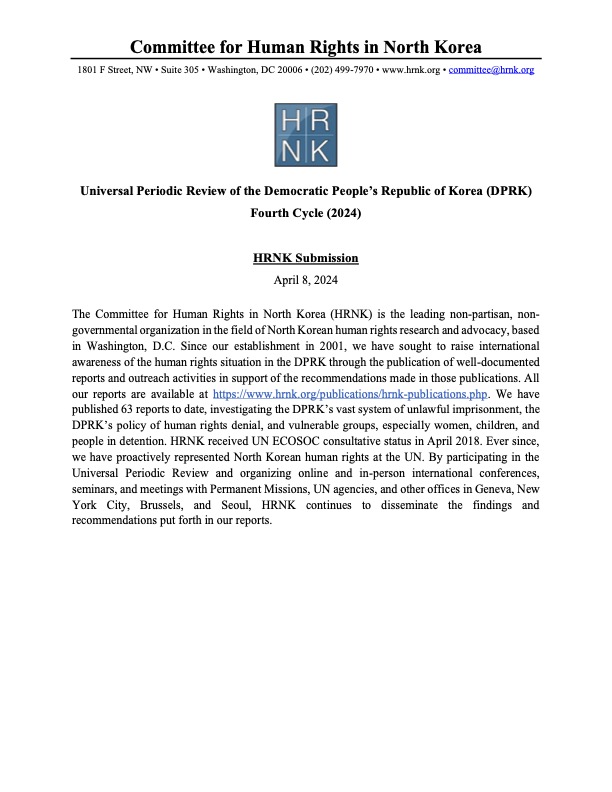
MP
Michael Danby was elected as a Labor member for Melbourne Ports in 1998, and was re-elected in 2001, 2004, 2007 and 2010. Since his election, his main areas of interest have been foreign affairs, defense and national security, immigration, electoral matters, human rights and the environment. He has also been active on the issue of the childcare crisis in inner urban areas such as Melbourne Ports. In the Parliament, Michael Danby served as one of two Opposition Whips (2001-2007). He has also served as Deputy Chair of the Parliament’s Joint Standing Committee on Electoral Matters. From 2007–2010, he was the Chair of the Joint Standing Committee on Migration. He was the Chairman of the Joint Standing Committee on Foreign Affairs, Defense and Trade, and was appointed the Parliamentary Secretary for the Arts in March 2013. He is the Chair of the Australia-United States Parliamentary Friendship Committee, Secretary of the Australia-Israel Friendship Group, and Chair of the All-Party Parliamentary Group for Tibet.

Special Envoy for Preserving Holocaust Remembrance and Combating Antisemitism, Government of Canada
Irwin Cotler is a Law Professor, Constitutional and Comparative Law Scholar, International Human Rights Lawyer, Counsel to prisoners of conscience, NGO Head, Public Intellectual, Peace Activist, Member of Parliament, former Minister of Justice and Attorney General of Canada, and the Government of Canada's first Special Envoy for Preserving Holocaust Remembrance and Combating Antisemitism. Irwin Cotler’s work has been characterized as being “at the forefront of the struggle for justice, peace and human rights.” Professor Cotler is presently a Canadian Member of Parliament and currently serves as a Liberal Critic for Rights and Freedoms. He is the Vice-Chair of the House of Commons’ Foreign Affairs Subcommittee on International Human Rights, Co-Chair of the Inter-Parliamentary Group for Human Rights in Iran, International Chair of the Responsibility to Prevent Coalition, and Chair of the All-Party Save Darfur Coalition. A leading public advocate in and out of Parliament for the Human Rights Agenda, he headed the Canadian Delegation to the Stockholm International Forum on the Prevention of Genocide.
An international human rights lawyer, Professor Cotler served as a Counsel to former prisoners of conscience in the former Soviet Union, South Africa, Latin America, and Asia. More recently, he represented imprisoned Egyptian blogger Maikel Nabil, and is also a member of the international legal team of two Chinese political prisoners – 2011 Nobel Peace Prize Laureate Liu Xiaobo, and Gao Zhisheng. Professor Cotler also served as a Counsel to the Deschênes Commission of Inquiry in the matter of bringing Nazi war criminals to justice; filed amicus briefs before the International Criminal Tribunals for former Yugoslavia and Rwanda; and was leading advocate for the establishment of an International Criminal Court.
Professor Cotler’s efforts have resulted in his chairing, or being a member of, a number of governmental and citizens’ Commissions of Inquiry, including being Chair of the International Commission of Inquiry into the Fate and Whereabouts of Raoul Wallenberg; Chair of the Commission on Economic Coercion and Discrimination; and member of the Commission of Inquiry on the Crime of Apartheid.
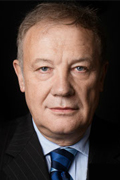
Ambassador of the Czech Republic to the United States
His Excellency Martin Palouš, was appointed Ambassador of the Czech Republic to the United States by Czech President Vaclav Havel in the summer of 2001. Mr. Palouš was one of the first signatories of Charter 77 and served as a spokesman for this dissident human rights group in 1986. A founding member of the Civic Forum, he was elected to the Federal Assembly in 1990 and became a member of its Foreign Affairs Committee. He joined the Ministry of Foreign Affairs of Czechoslovakia as an adviser to Minister Dienstbier and was the Deputy Minister of Foreign Affairs from October 1990 to October 1992.
Dr. Palouš has held a number of teaching positions at Charles University since 1990. He became a member of the Faculty of Social Sciences in 1994 and served for some time as the Faculty's Vice-Dean. In 1993, he joined the Centre for Theoretical Studies and has lectured extensively in the United States. Until 1998, Mr. Palouš was also active in various non-governmental organizations (including his service as the Chairman of the Czech Helsinki Committee and Co-Chairman of the Helsinki Citizens Assembly). In October 1998, he became the Deputy Minister of Foreign Affairs of the Czech Republic.
Dr. Palouš is the author of numerous publications, including the chapter on the Czech Republic in the European Commission publication Democratization in Central and Eastern Europe, "Totalitarianism and Authoritarianism," in the Encyclopedia of Violence, Peace and Conflict (1999), and "Between Idealism and Realism: Reflections on the Political Landscape of Post Communism," in Between Past and Future: "The Revolutions of 1989 and their Aftermath" (2000).
He is the President of the Václav Havel Library Foundation in New York, Director of International Programs of the Václav Havel Library in Prague, and Senior Fellow at the School of International and Public Affairs at Florida International University in Miami.
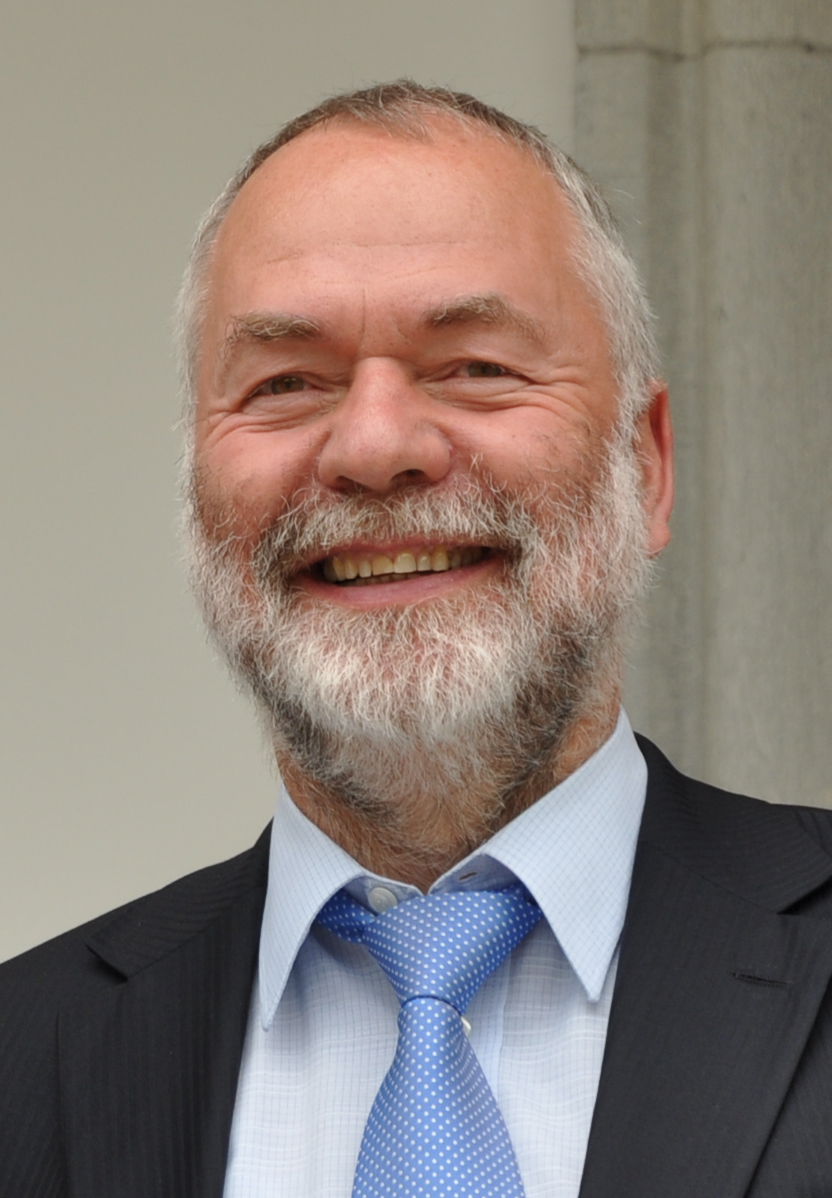
Social Democratic Party
A theologian and politician, Markus Meckel is a leading figure of the opposition in the German Democratic Republic and co-founded the Social Democratic Party in the GDR 1989. In 1990, after the free elections, he served as the Foreign Minister of the GDR. As a member of the German Bundestag (1990-2009), he focused on European politics, security issues, and German-Polish relations. He was the vice-spokesman of the SPD for foreign policy up to 2009, and spokesman of the SPD parliamentary group in two commissions dealing with the SED dictatorship and its consequences (1992–98). Markus Meckel was the chairman of the German-Polish Parliamentary Group (1994-2009), and head of the German parliamentary delegation to NATO. He is the chairman of the Council of the Foundation for the Reappraisal of the SED Dictatorship (a body he initiated) and member of the advisory board of the Federal Authority for the Processing of GDR State Intelligence Files/BStU. He is the German co-chairman of the Council of the Foundation for German-Polish Cooperation. He is also a member of the Advisory Board of European Network Remembrance and Solidarity.
(Image Credit: Presidendi kantselei / Office of the President, CC BY-SA 3.0 <https://creativecommons.org/licenses/by-sa/3.0>, via Wikimedia Commons)

Alliance of Free Democrats (SZDSZ)
In 1988 Eörsi was among the founders of the liberal Alliance of Free Democrats (SZDSZ), one of the first Hungarian democratic parties. As a founder, he was involved in the so-called National Negotiations, the series of negotiations between the Communist Party and the emerging opposition on the rules and laws of the transition to a democratic system. A year later, as a member of the CEC (Central Election Commission), he was responsible for a historical referendum on crucial constitutional affairs. In 1989, Eörsi was elected to the parliament, during the first free post-communist general elections in Hungary. In his first parliamentary term, he was a member of the Constitutional Committee, where most laws for the constitutional changes were prepared and agreed on. At the same period, he was a member of the EU-Integration Committee as well.
Parliamentary Assembly of the Council of Europe (PACE) has provided him the opportunity to work at his personal mission: assisting in political transitions and the creation of democratic institutions in order to safeguard human rights and the rule of law. Due to his commitment to democracy, Eörsi has undertaken numerous missions to support democratic development in Europe and beyond, among others on behalf of the National Democratic Institute for International Affairs (NDI) in Washington, D.C. and Freedom House. During these missions, he shared the Hungarian transition experiences of the early 1990s in countries such as Albania, Latvia, all South Caucasus countries, and later South Africa, Burundi, Indonesia, Mali and Montenegro. Furthermore he was involved in the Israeli/Palestinian peace process. In 2007, he visited Cuba to share the Hungarian experiences and strategies with the opposition. With PACE, Mátyás Eörsi guided the democratic reforms in Georgia as a rapporteur since 2000, and has been a chairperson of election observation missions for many times. He submitted several reports to the Assembly, but he takes a special pride in three of them. The report about Cyprus (2004) was supported by all stakeholders, unprecedented in the history of the Assembly. His recent report, “Attitude to Memorials Exposed to Different Historical Interpretations” (2009), was also adopted by consensus and was applauded both by Estonian and Russian members. His report on the Balkans (2006) provided a comprehensive set of recommendations on European aid to citizens of the Balkan countries.
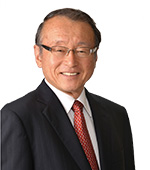
Democratic Party of Japan
Masaharu Nakagawa is a Japanese politician serving in the House of Representatives in the Diet as a member of the Democratic Party of Japan. A native of Matsusaka and Mie prefectures and graduate of Georgetown University in the United States, he was elected for the first time in 1996 after serving in the local assembly of Mie Prefecture. In September 2011 he was appointed as the Minister of Education, Culture, Sports, Science and Technology in the cabinet of newly appointed prime minister Yoshihiko Noda.
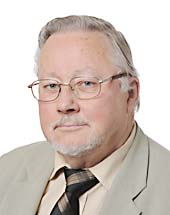
Member of Parliament
Dr. Landsbergis was one of the leaders of the Council of the Baltic States (1990 – 1992) and in 1990 – 1991 was Chairman of the Commission for the New Constitution of the Lithuanian Republic, as well as of the State Delegation for the negotiations with the USSR. Under his leadership Lithuania resisted the armed violence and blockade of the USSR and achieved the international recognition for its restored independence and also an agreement with Russia to withdraw Russian troops from Lithuania.
After the elections in October – November, 1992 Mr. Landsbergis became a Member of Parliament and was then elected leader of the opposition in the Lithuanian Seimas (Parliament). He was also a member of the Lithuanian delegation to the Parliamentary Assembly of the Council of Europe as well as a member of the Lithuanian to the delegation to the Baltic Assembly. In 1991, Mr. Landsbergis received the Norwegian People's Peace Prize for his role in the restoration of Lithuanian independence, the Award of Foundation du Future (France) and, the International Freedom Foundation's (UK) 1991 Freedom Award. In 1992 he received Herman Ehlers Prize, and in 1994, the 9th International Ramon Liull Prize of the Catalonian Culture Congress Foundation. With the help of the Norwegian People's Peace Prize, Mr. Landsbergis established the Vytautas Landsbergis Foundation, a non-profit, charitable organization dealing with the care and education of handicapped children and young performing artists.
Mr. Landsbergis holds a Doctor of Law from Loyola University in Chicago (USA), a Doctor of Humanities from Weber State University in Ogden (USA) and a Doctor of Philosophy from Vytautas Magnus University in Kaunas (Lithuania). In 1992, Mr. Landsbergis was given an honorary degree of Doctor of Law by Yale University (USA).
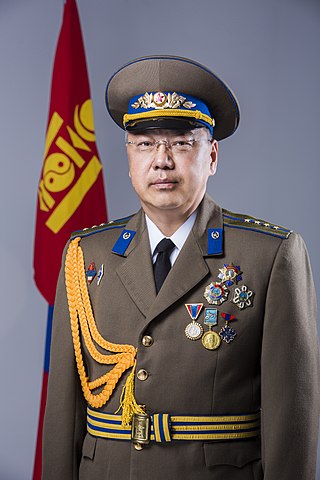
Prime Minister of Mongolia
His Excellency Rinchinnyam Amarjargal contributed to the democratic movement in Mongolia from the beginning of the democratization movement. He was a founding member of the Progress-Union and the National Progress-Party. Then he helped merge those with several other parties to form the National Democratic Party (MNDP, Mongolyin Undesnii Ardchilsan Nam). He was elected to State Great Khural (the Parliament) in 1996. On July 30, 1999 he was finally designated as the Prime Minister of Mongolia. Also in the year 2000 the MNDP and the Social Democratic Party merged to form the Democratic Party. He stayed in office for almost a year until July 26, 2000, when the Democratic Party was defeated in the parliamentary elections. In 2001 Amarjargal established the Amarjargal Foundation. This is a NGO which promotes a transparent and open society, and carries out studies on social welfare, economy, politics, and law. It also negotiates foreign help and investment. In 2004 Amarjargal was elected to the parliament as an independent candidate.
(Image Credit: AmarjargalR, CC BY-SA 4.0 <https://creativecommons.org/licenses/by-sa/4.0>, via Wikimedia Commons)

Lawyers for Human Rights and Unification of Korea
Dr. Tae-hoon Kim is chairman and founder of “Lawyers for Human Rights and Unification of Korea”. Previously, he was a Commissioner of the National Human Rights Commission of the Republic of Korea and the Chairman of the Special Committee for North Korean Human Rights of the NHRCK. He is an attorney at law of Yoon & Yang L.L.C. and a member of the Subcommittee on Human Rights in North Korea of the Korean Bar Association. He authored part of the “White Paper on North Korean Human Rights” published by KBA in 2008 and 2010.
He formerly served as a presiding judge of the Seoul Central District Court where he handled an extensive number of cases. He graduated from Seoul National University College of Law, LL.B., and has been a Columbia University Law School Visiting Scholar.
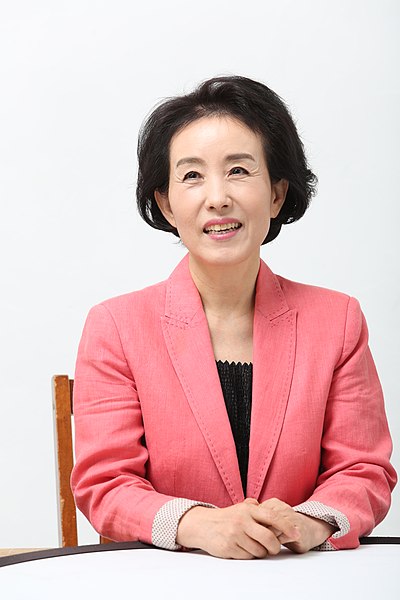
President’s Special Adviser for North Korean Human Rights
Park Sun-young is the President’s Special Adviser for North Korean Human Rights and a former member of the 18th National Assembly of South Korea. Mrs. Park was appointed to her current office by President Park Geun-hye in October 2012. As a member of the National Assembly from 2008 to 2012, Mrs. Park also represented the Liberty Forward Party as a spokesperson. In January 2011, she became the longest-serving female spokesperson of a political party in South Korea.
Mrs. Park is renowned for her activism for human rights in North Korea on many levels. She raised nationwide awareness of the issue by conducting a 78-day demonstration in front of the Chinese embassy in protest against the Chinese government’s repatriation of North Korean defectors. In May 2012, Mrs. Park founded a support organization, Mulmangcho (“Forget-Me-Not”), which assists North Korean defectors to resettle in South Korea.
She began her career as a reporter when she joined MBC (Munhwa Broadcasting Corporation) in 1977 during her senior year at Ehwa Womans University. She later earned her J.D. (Juris Doctor) from Seoul National University School of Law and became a professor at Dongguk University and Catholic University of Korea. She is married to Min Il-young, who is currently one of the Justices of the Supreme Court of South Korea.
(Image Credit: Personalsecretary.syp, CC BY-SA 4.0 <https://creativecommons.org/licenses/by-sa/4.0>, via Wikimedia Commons)
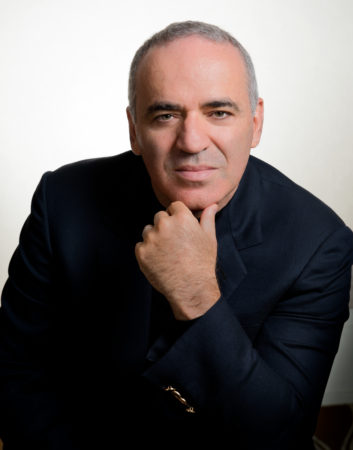
Youngest World Chess Champion
One of the world’s greatest chess players of all time, Mr.Kasparov received international fame as the youngest world chess champion in history in 1985 at the age of 22. Eager for new challenges, he retired from professional chess in 2005 after a record 20 years as the world’s top-ranked player. Kasparov wasted no time after leaving chess, joking that he would be “far busier as a retiree.” He quickly became an important voice in the Russian pro-democracy movement against the repressive regime of Vladimir Putin. He formed the United Civil Front, of which he is still the chairman, and co-led The Other Russia coalition that focused on uniting the Russian opposition to Putin under the banner of free and fair elections.
Kasparov also turned his energy to writing and public speaking. “I have spent my life thinking about thinking,” he said, “and I find many others are as interested in the field of improving human performance as I am.” Kasparov’s keynote lectures and seminars on strategic thinking, achieving peak performance, and tech innovation have been acclaimed in dozens of countries. His 2007 book on decision-making, “How Life Imitates Chess,” was translated into over 20 languages.
The Kasparov Chess Foundation (KCF) was launched in New York City in 2002 with the purpose of bringing chess into the educational system in the United States and worldwide. Kasparov has long promoted the many benefits of chess for schoolchildren KCF’s program is now used in thousands of schools. KCF formed branches in Europe and Africa and has continued its rapid expansion.

Serbian Human Rights Activist
Nataša Kandić is a Serbian human rights activist and the founder and former executive director of the Humanitarian Law Center (HLC), an organization campaigning for human rights and reconciliation in the former Yugoslavia. She formed the organization in 1992. The HLC's research was integral to the war crimes prosecutions of the International Criminal Tribunal for the Former Yugoslavia. Kandić is a recipient of more than 20 international, regional and national human rights awards. In 2000, she won the Martin Ennals Award for Human Rights Defenders, awarded jointly by Amnesty International, Diakonia, Human Rights Watch, HURIDOCS, International Alert, the International Commission of Jurists, the International Federation for Human Rights, the International Service for Human Rights and the World Organization Against Torture, granted annually to an individual or an organization who has displayed exceptional courage in combating human rights violations. She was listed by Time as one of its 36 European Heroes in 2003, and again featured as a Time European Hero in 2006. In 2004, The People in Need Foundation awarded Kandic and the HLC its Homo Homini Award, presented by Václav Havel. In 2005, she was proclaimed an honorary citizen of Sarajevo, and Slobodna Bosna magazine named her the Person of the Year in Bosnia and Herzegovina. In September 2006, Kandić was named to the Order of Danica Hrvatska and awarded by the President of Croatia, which is given to individuals who have made a significant contribution to the advancement of moral values.
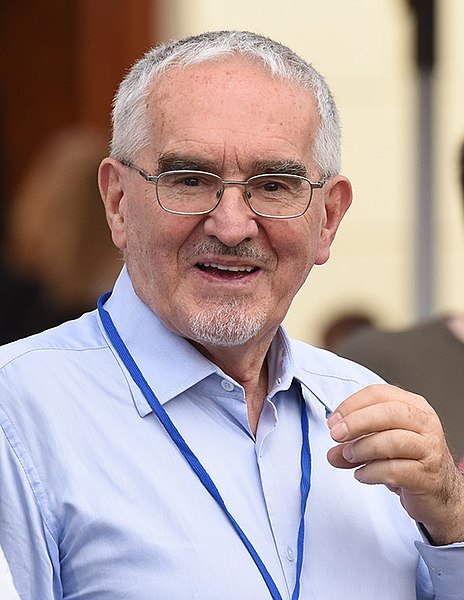
Former Ambassador of Slovakia to the United States
His Excellency Martin Bútora, is currently an Honorary President of the Institute for Public Affairs and Program Director of 'European Integration and Transatlantic Relations' Program. In the past, he has worked as a university professor, diplomat, Ambassador of Slovakia to the United States (1999-2003). Mr. Bútora is a graduate of the Faculty of Arts of the Comenius University, Bratislava, Slovakia, holding a degree in sociology. In the late sixties, he was active as an editor-in-chief of student newspapers "Echo bratislavských vysokoškolákov" [Echo of Bratislava's University Students] and later as a deputy-chief editor of Reflex magazine and the weekly publication "Kultúrny život" [Cultural Life]. In November 1989, Mr. Bútora was one of the founders of the political movement, Public Against Violence. In the spring of 1990, as a member of its Coordinating Committee (KC VPN), he took part in crafting Movement's election program –Chance for Slovakia. In the period of 1990- 1992, he held a position of a Human Rights Advisor to the President of Czech and Slovak Federal Republic Václav Havel, and the post of Director of the Human Rights Section in the Office of the President. In the early 1990s, he taught at Charles University in Prague (where he holds a position of Professor Habilis since 1992); later he taught at the Department of Political Science, Trnava University (1993 - 1998). In 1997, he co-founded the Institute for Public Affairs and served as its first president. Ambassador Bútora is an author of three prosaic works, several TV programs and film scripts, and translations of theatrical plays. In 1999, National Endowment for Democracy based in Washington D.C. awarded him the Democracy Service Medal; in 2000, he received the Ján Papánek Medal; and in 2002, the American Jewish Committee awarded him the Celebration of Freedom Award. In the same year, he received the Order of Ľudovít Štúr for his contribution to the defense of human rights and development of civil society from the President of Slovakia.
(Image Credit: Pavol Frešo, CC BY 2.0 <https://creativecommons.org/licenses/by/2.0>, via Wikimedia Commons)
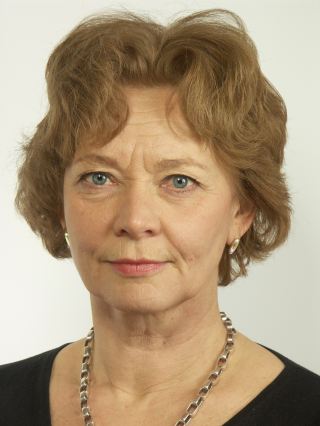
Secretary General of the Community of Democracies (CD)
Her Excellency Maria Leissner was elected the Secretary General in April, 2012, becoming the first Secretary General of the Community of Democracies (CD). Prior to the office, she was Sweden’s Ambassador at large for Democracy, and led the CD Working Group on Governance that proposed the recent reforms of the CD. Maria Leissner was a member of the Parliament of Sweden from 1985 – 1991, after leading the Swedish Liberal Youth organization both as Secretary General and as President. As a MP, she served in the Foreign Affairs Committee and was a party spokesperson for refuge- and immigration issues. In 1995, she was elected as the leader of the Liberal Party, the first female leader of the party.
She joined the Ministry of Foreign Affairs in 2000 and was Ambassador to Guatemala, Honduras, El Salvador, Belize and Costa Rica from 2000 to 2004. She led a governmental delegation for Roma issues in from 2006 to 2010, including the production of a state investigation of the situation of the Roma minority in Sweden. She was the chair of the board of the University College of Borås from 2007 to 2010. Ambassador Leissner has also served internationally as the Director for NDI’s Governance program in Iraq (2004-2005) and as a Senior Advisor for Human Rights at AMM (EU/ASEAN peace monitoring mission) in Aceh, Indonesia (2005-2006). She has participated in a large number of election monitoring and other short term democracy-related missions with SIDA, the Scandinavian Institute for African Studies, NDI, and etc.

Special Rapporteur on the situation of human rights in Cambodia
Former Special Rapporteur on the situation of Human Rights in the DPRK (North Korea)
Professor Vitit Muntarbhorn is the current Special Rapporteur on the situation of human rights in Cambodia. He is also a former Special Rapporteur on the situation of Human Rights in the DPRK (North Korea). An international law Professor, he was educated in the United Kingdom, obtaining his undergraduate and graduate law degrees from Oxford University. He also holds a degree on European law from the Free University of Brussels. He is currently a professor of law at the Chulalongkorn University in Bangkok, teaching international law, human rights, the law of regional organizations, migration and refugee law, child rights, international humanitarian law, and European Union law. He was awarded the UNESCO Human Rights Education Prize in 2004. Professor Muntarbhorn has served in many United Nations bodies. He was formally the United Nations Special Rapporteur on the situation of human rights in North Korea. He has also been the Special Rapporteur of the UN Commission on Human Rights on the Sale of Children, Child Prostitution and Child Pornography. He was the Chair of the International Commission of Inquiry on the Ivory Coast in 2011, and since September 2012, has been serving as a Commissioner on the Independent International Commission of inquiry on Syria. Professor Muntarbhorn has performed a substantial amount of work with non-governmental organizations in the field of human rights as well as with the Red Cross and Red Crescent. Professor Muntarbhorn is the author of many publications on human development and human rights issues involving women and children.
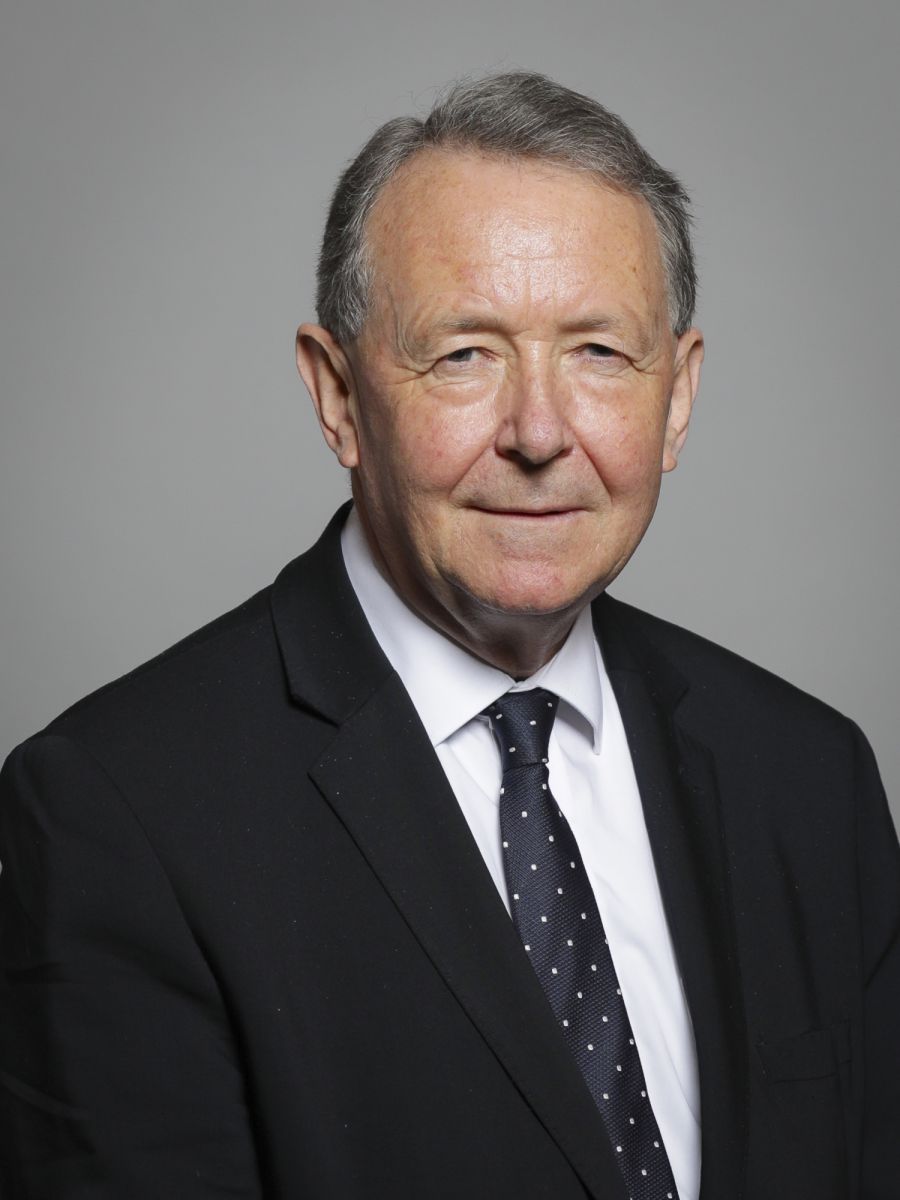
Chairman of the British-DPRK All-Party Parliamentary Group
Lord David Alton was elected and joined the Liverpool City Council as the Britain’s youngest City Councilor in 1972. He also became the youngest member of the House of Commons in 1979 and, in 1997, was named the Life Peer of the House of Lords. He was made a life peer as Baron Alton of Liverpool, of Mossley Hill in the County of Merseyside, and as a personal choice of John Major in the Dissolution Honours, and took his seat in the House of Lords as a crossbencher. Lord Alton is the chairman of the British-DPRK All-Party Parliamentary Group, and visited Pyongyang in October 2010 when he had talks with leaders of the North Korean government including Choe Thae Bok, who is the chairman of the Supreme People's Assembly, the country's rubber-stamp parliament. Lord Alton established the successful lobby group for human rights, Jubilee Campaign, in 1987, with the support of numerous members of parliament. Since then, he also co-founded Jubilee Action, a children's charity established to fulfill the humanitarian needs highlighted by the work of Jubilee Campaign. He has continued to host the Roscoe Lecture Series; has travelled to, and produced reports about, the situation in Tibet, North Korea and Southern Sudan. His following visit to India raised the plight of India’s Dalits. In recognition of his work for human rights and religious liberty, he became a Knight Commander of St. Gregory in 2006.
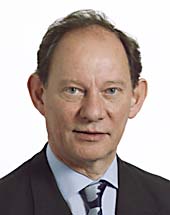
MEP
Edward McMillan-Scott MEP is the only British Vice-President of the directly elected 751-member European Parliament. He has been in the office since 2004 through four consecutive elections by his peers. He is one of the most experienced MEPs and was first elected for Yorkshire & Humber in 1984. As the Vice-President, his portfolio includes Democracy & Human Rights, and Transatlantic Relations. Internationally recognized and respected as a staunch defender of human rights of dissidents in the ex-Soviet bloc, China, and the Arab World, Mr. McMillan-Scott’s voice stands for the voiceless. A frequent visitor to the Middle East, he has long advocated democratic reforms across the Arab world. He founded the €160 million European Instrument for Democracy and Human Rights (EIDHR), which promotes democracy and human rights worldwide, operating without host country consent. Mr. McMillan-Scott advocates for civil liberties, fair elections, fair taxation, education reform and radical reform of the EU's Common Agricultural Policy. He supports EU economic governance since the Euro crisis to sustain the EU’s Single Market – which has created 3.5 million jobs in the UK. As a father and grandfather, he campaigns to improve children’s rights across the EU.
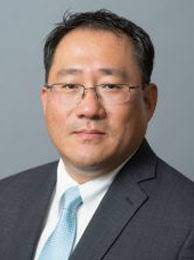
Director of the U.S.-Korea Institute at SAIS
Dr. Jae H. Ku is the Director of the U.S.-Korea Institute at SAIS. Before joining the U.S.-Korea Institute, he was the Director of the Human Rights in North Korea Project at Freedom House. He has taught at the Johns Hopkins University School of Advanced International Studies, Brown University, Yonsei University (Seoul, Korea), and Sookmyung Women’s University (Seoul, Korea). His research interests are as the following: Inter-Korean Relations, U.S.-Korea relations, Democracy in Asia, and Human Rights in North Korea. He has been a recipient of both Fulbright and Freeman fellowships and has researched at various think tanks, including the Center for Strategic and International Studies (Washington, DC), the Korean Institute of International Studies, (Seoul, Korea), and the Institute for International Relations (Hanoi, Vietnam).
Dr. Ku holds a Ph.D. from the Johns Hopkins School of Advanced International Studies, M.Sc. from the London School of Economics, and A.B. from Harvard University. He speaks fluent Korean and has a working knowledge of Vietnamese. He was the editor of Change and Challenge on the Korean Peninsula, Vol. 5 (CSIS, 1996) and his writings have appeared in the Washington Quarterly, World and I, Scripps Howard News, The Chosun Ilbo, and The Korea Herald.
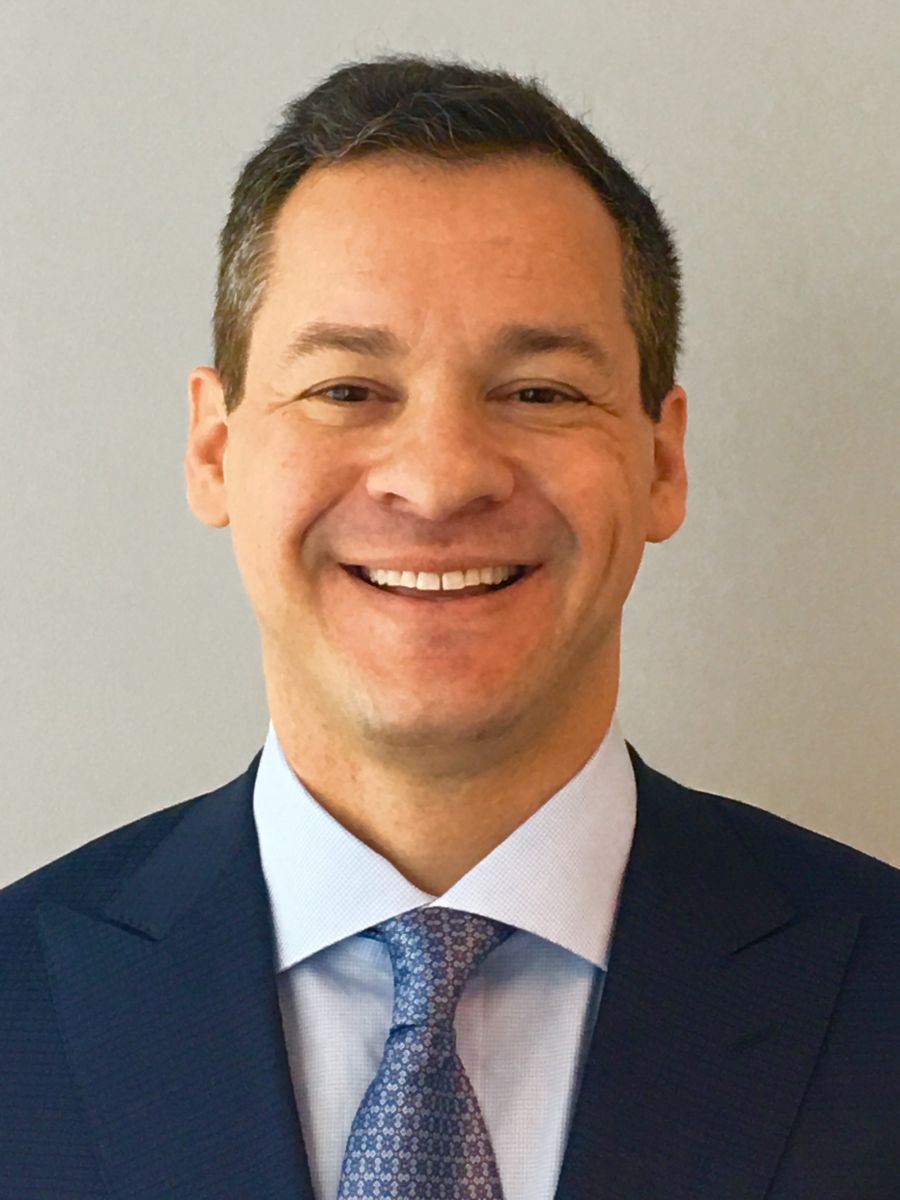
Perseus Strategies, LLC
Freedom Now
Jared Genser is the Managing Director of Perseus Strategies, LLC. He is also the founder of Freedom Now, which is an independent non-profit organization that works to free prisoners of conscience worldwide. Previously, Mr. Genser was a partner in the government affairs practice of DLA Piper LLP and a management consultant with McKinsey & Company, the global strategy consulting firm. He was named by the National Law Journal as one of the “40 Under 40: Washington’s Rising Stars." Mr. Genser has taught classes about the UN Security Council as an adjunct professor of law at Georgetown University Law Center as well as the University of Michigan, and University of Pennsylvania law schools. He was a Visiting Fellow with the National Endowment for Democracy from 2006 to 2007. His pro bono clients include the former Czech Republic President Václav Havel and Nobel Peace Prize Laureates Aung San Suu Kyi, Liu Xiaobo, Desmond Tutu, and Elie Wiesel. He holds a B.S. from Cornell University, a Master in Public Policy from the John F. Kennedy School of Government at Harvard University, where he was an Alumni Public Service Fellow, and a J.D. cum laude from the University of Michigan Law School. He also was a Raoul Wallenberg Scholar at Hebrew University of Jerusalem. Mr. Genser is the author of The UN Working Group on Arbitrary Detention: Commentary and Guide to Practice (Cambridge University Press, Forthcoming 2014). He is also a co-editor of The Responsibility to Protect: The Promise of Stopping Mass Atrocities in Our Times (Oxford University Press, 2012) and The UN Security Council in the Age of Human Rights (Cambridge University Press, Forthcoming 2013). He is a board member of Ennaid Therapeutics, an innovative biotechnology company which seeks to bring cures to currently incurable diseases. He is also an advisory committee member of New Perimeter, which conducts major pro bono projects of vital importance in developing and post-conflict regions of the world. Mr. Genser has appeared as a panelist for the Committee for Human Rights in North Korea’s (HRNK) “Heart of Darkness” conference at the Illinois Holocaust and Education Center in Skokie, Illinois. He also provided pro bono services while at DLA Piper for HRNK’s 2006 publication, Failure to Protect: A Call for the UN Security Council to Act in North Korea.
In this submission, HRNK focuses its attention on the following issues in the DPRK: The status of the system of detention facilities, where a multitude of human rights violations are ongoing. The post-COVID human security and human rights status of North Korean women, with particular attention to sexual and gender-based violence (SGBV). The issue of Japanese abductees and South Korean prisoners of war (POWs), abductees, and unjust detainees.
This report provides an abbreviated update to our previous reports on a long-term political prison commonly identified by former prisoners and researchers as Kwan-li-so No. 25 by providing details of activity observed during 2021–2023. This report was originally published on Tearline at https://www.tearline.mil/public_page/prison-camp-25.
This report explains how the Kim regime organizes and implements its policy of human rights denial using the Propaganda and Agitation Department (PAD) to preserve and strengthen its monolithic system of control. The report also provides detailed background on the history of the PAD, as well as a human terrain map that details present and past PAD leadership.

HRNK's latest satellite imagery report analyzes a 5.2 km-long switchback road, visible in commercial satellite imagery, that runs from Testing Tunnel No. 1 at North Korea's Punggye-ri nuclear test facility to the perimeter of Kwan-li-so (political prison camp) no. 16.
This report proposes a long-term, multilateral legal strategy, using existing United Nations resolutions and conventions, and U.S. statutes that are either codified or proposed in appended model legislation, to find, freeze, forfeit, and deposit the proceeds of the North Korean government's kleptocracy into international escrow. These funds would be available for limited, case-by-case disbursements to provide food and medical care for poor North Koreans, and--contingent upon Pyongyang's progress
For thirty years, U.S. North Korea policy have sacrificed human rights for the sake of addressing nuclear weapons. Both the North Korean nuclear and missile programs have thrived. Sidelining human rights to appease the North Korean regime is not the answer, but a fundamental flaw in U.S. policy. (Published by the National Institute for Public Policy)

North Korea’s forced labor enterprise and its state sponsorship of human trafficking certainly continued until the onset of the COVID pandemic. HRNK has endeavored to determine if North Korean entities responsible for exporting workers to China and Russia continued their activities under COVID as well.
George Hutchinson's The Suryong, the Soldier, and Information in the KPA is the second of three building blocks of a multi-year HRNK project to examine North Korea's information environment. Hutchinson's thoroughly researched and sourced report addresses the circulation of information within the Korean People's Army (KPA). Understanding how KPA soldiers receive their information is needed to prepare information campaigns while taking into account all possible contingenc
This report is part of a comprehensive long-term project undertaken by HRNK to use satellite imagery and former prisoner interviews to shed light on human suffering in North Korea by monitoring activity at political prison facilities throughout the nation. This is the second HRNK satellite imagery report detailing activity observed during 2015 to 2021 at a prison facility commonly identified by former prisoners and researchers as “Kwan-li-so No. 14 Kaech’ŏn” (39.646810, 126.117058) and
This report is part of a comprehensive long-term project undertaken by HRNK to use satellite imagery and former prisoner interviews to shed light on human suffering in North Korea by monitoring activity at civil and political prison facilities throughout the nation. This study details activity observed during 1968–1977 and 2002–2021 at a prison facility commonly identified by former prisoners and researchers as "Kyo-hwa-so No. 3, T'osŏng-ni" and endeavors to e
This report is part of a comprehensive long-term project undertaken by HRNK to use satellite imagery and former detainee interviews to shed light on human suffering in the Democratic People’s Republic of Korea (DPRK, more commonly known as North Korea) by monitoring activity at political prison facilities throughout the nation. This report provides an abbreviated update to our previous reports on a long-term political prison commonly identified by former prisoners and researchers as Kwan-li-so
Through satellite imagery analysis and witness testimony, HRNK has identified a previously unknown potential kyo-hwa-so long-term prison-labor facility at Sŏnhwa-dong (선화동) P’ihyŏn-gun, P’yŏngan-bukto, North Korea. While this facility appears to be operational and well maintained, further imagery analysis and witness testimony collection will be necessary in order to irrefutably confirm that Sŏnhwa-dong is a kyo-hwa-so.

"North Korea’s Long-term Prison-Labor Facility Kyo-hwa-so No. 8, Sŭngho-ri (승호리) - Update" is the latest report under a long-term project employing satellite imagery analysis and former political prisoner testimony to shed light on human suffering in North Korea's prison camps.

Human Rights in the Democratic Republic of Korea: The Role of the United Nations" is HRNK's 50th report in our 20-year history. This is even more meaningful as David Hawk's "Hidden Gulag" (2003) was the first report published by HRNK. In his latest report, Hawk details efforts by many UN member states and by the UN’s committees, projects and procedures to promote and protect human rights in the DPRK. The report highlights North Korea’s shifts in its approach
South Africa’s Apartheid and North Korea’s Songbun: Parallels in Crimes against Humanity by Robert Collins underlines similarities between two systematically, deliberately, and thoroughly discriminatory repressive systems. This project began with expert testimony Collins submitted as part of a joint investigation and documentation project scrutinizing human rights violations committed at North Korea’s short-term detention facilities, conducted by the Committee for Human Rights
